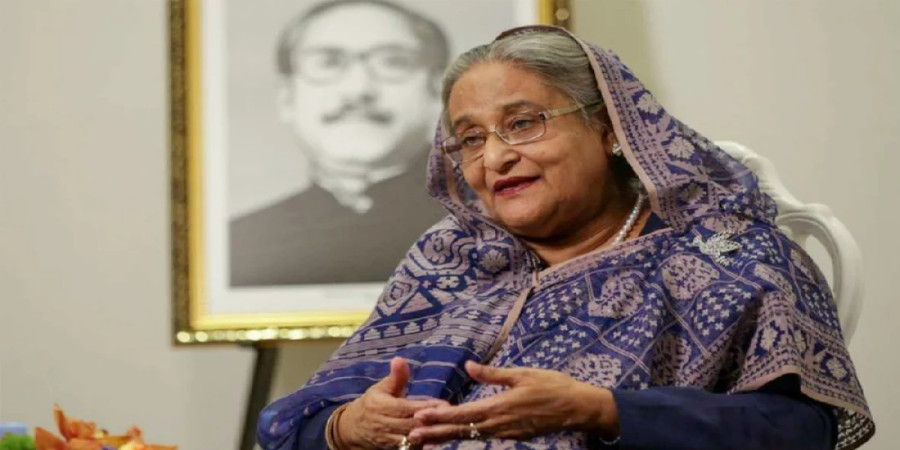
ছবি: Photo: Collected
Sheikh Hasina, Bangladesh's ousted prime minister, who took refuge in India following a mass uprising in August last year, has had her visa extended by the Indian government. The decision comes amidst diplomatic pressure from Bangladesh’s interim government to repatriate Hasina, who is facing multiple charges, including alleged involvement in genocide and crimes against humanity.
The International Crimes Tribunal has already initiated legal proceedings against her, issuing an arrest warrant. Concurrently, the interim government has officially appealed to India through diplomatic channels, seeking her extradition. However, India's recent move to extend her visa suggests a cautious approach to the complex situation.
According to the Indian news outlet Hindustan Times, the decision to extend Hasina’s visa was made to ensure her continued stay in India. Citing unnamed officials, the report stated that India currently lacks specific legal frameworks to address such scenarios, which further complicates the matter. The officials, declining to be named, added that the visa extension decision falls under the jurisdiction of India’s Ministry of Home Affairs.
Despite diplomatic pressure, India appears hesitant to proceed with the repatriation. Earlier reports from Hindustan Times indicated that Bangladesh has yet to complete the necessary formalities required for such a transfer. Meanwhile, Sheikh Hasina’s situation has become a focal point in Dhaka’s political landscape. The interim government recently revoked her passport, along with those of several others accused of involvement in crimes during the country’s political turmoil.
Deputy Press Secretary Abul Kalam Azad Mojumder revealed during a press briefing that the government had canceled 22 passports linked to enforced disappearances and killings, including Hasina’s. He also noted that 75 individuals accused of genocide in July and August had their passports revoked.
In its efforts to pressure India, Bangladesh’s interim government sent an official request on December 23 for Hasina’s extradition. However, as of now, no response has been issued by the Indian government. Shafiqul Alam, Press Secretary to the Chief Advisor of Bangladesh’s interim government, confirmed the lack of communication regarding the matter.
Analysts view these actions as part of the interim government’s broader strategy to maintain diplomatic pressure on India. However, the lack of formal mechanisms and legal precedents complicates India’s position. Sheikh Hasina’s extended stay in India continues to be a sensitive issue, reflecting the complex interplay of legal, political, and diplomatic challenges faced by both nations.
repoter






